- AdventHealth Foundation Central Florida
Choose the health content that’s right for you, and get it delivered right in your inbox.

Experts from around the world gathered at the National Institutes of Health in Bethesda, MD, to discuss the current state and progress in artificial insulin delivery, commonly referred to as the artificial pancreas. In multiple sessions spanning two days, one of those moderated by Dr. Anna Casu, a Translational Research Institute Associate Investigator, scientists shared their research endeavors aimed at assisting individuals living with Type 1 diabetes.
The focal point of the meeting revolved around developing a fully closed-loop system that eliminates the need for patient intervention in administering insulin. Various strategies were explored, including augmenting insulin with other medications, and employing different algorithms and sensors to detect meal intake and physical activity.
"The ultimate objective of artificial insulin delivery is to replicate the functioning of a healthy pancreas," explained Dr. Casu. By amalgamating multiple factors such as chewing, arm movement during eating, exercise, and heart rate, researchers aspire to create a system that can automatically regulate insulin delivery without requiring manual adjustments.
Dr. Casu played a vital role in moderating a session that emphasized delivering insulin directly into the abdomen, closely mirroring the physiological process, and expected to yield improved outcomes. Although these studies are not yet ready for human trials, scientists anticipate that more information regarding this novel insulin delivery method will be available in the upcoming year.
Additionally, the meeting explored the use of different medications alongside insulin to enhance glucose control and the detection of other metabolites circulating in the blood that could influence insulin secretion.
"The meeting atmosphere was filled with excitement and hope," stated Dr. Casu. "After a hiatus due to the COVID-19 pandemic, participants were thrilled to reunite and engage in valuable interactions with fellow scientists."
A noteworthy aspect of the meeting was the inclusion of a roundtable where patients with type 1 diabetes expressed their needs and desires regarding treatment. This patient-centric approach ensures that scientific advancements align with the expectations and preferences of those directly affected by diabetes. Patient input is pivotal in guiding future research and development efforts. "The patients' concerns revolved around issues such as insurance coverage for new technologies, the need for fully automated systems, frustration with device interactions, access to healthcare professionals, and the ability to maintain glucose levels within the desired range. Despite these challenges, the participants had an overwhelming sense of hope," remarked Dr. Casu. They acknowledged that progress is being made, and new technologies hold promise for improving the lives of individuals with type 1 diabetes.
Dr. Casu emphasized the accelerated pace of Type 1 diabetes research, stating that progress is being made. The primary objective is to advance artificial insulin delivery systems to a stage requiring minimal patient interaction. The ultimate goal is to develop a seamless system that reduces the burden on patients, eliminating the need for constant monitoring and calculations.
The meeting left Dr. Casu feeling optimistic about the future. "The outcomes and discussions from the meeting are expected to resonate with patient advocates, pharmaceutical companies, and funding agencies, fostering collaboration and driving efforts toward finding practical solutions for diabetes management."
Dr. Casu believes that the meeting not only showcased the advancements in artificial insulin delivery but also highlighted the dedication of researchers, healthcare professionals, and patient advocates in enhancing the lives of individuals with Type 1 diabetes.
"With collective efforts and an accelerated pace of development, the future holds great promise for the realization of fully automated insulin delivery systems, providing hope for improved diabetes management worldwide."
Recent News
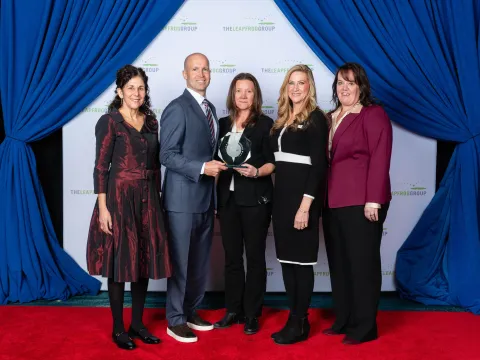
AdventHealth Avista Recognized as a Top Teaching Hospital in Colorado for Patient Safety and Quality Care
For patients and families, feeling safe, heard, and well cared for is foundational to healing. That commitment to whole-person care is why AdventHealth Avista has been recognized as one of Colorado’s...

Phoebe Carpenter, APRN-CNP, joins AdventHealth Medical Group Family Medicine, Internal Medicine & Pediatrics at Curtis Parkway
AdventHealth is pleased to announce that Phoebe Carpenter, APRN-CNP, has joined AdventHealth Medical Group Family Medicine, Internal Medicine & Pediatrics at Curtis Parkway.
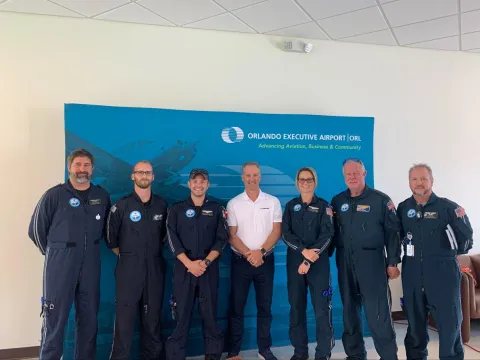
Pilot survives heart attack thanks to Flight 1 and whole-person connected care
From ER to air to cath lab, a seamless system delivered lifesaving treatment in under 90 minutes.

Pulmonologist joins AdventHealth Waterman
From nutrition and ICU to advanced bronchoscopy, Dr. Alba Rivera-Díaz brings bilingual, whole-person lung care to Lake County.
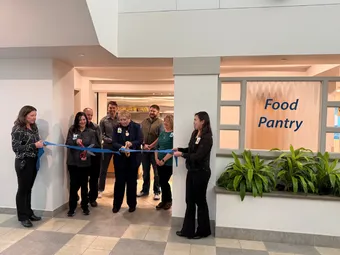
AdventHealth Avista opens food pantry to support community health
AdventHealth Avista has taken a significant step toward addressing food insecurity, a key priority identified in its Community Health Needs Assessment by opening a food pantry on its first floor. This...

AdventHealth Porter Earns COPPER Designation, Strengthening Pediatric Emergency Care
AdventHealth Porter is proud to announce that its Emergency Department has earned the Pediatric Advanced COPPER designation, a significant milestone that reflects a deep commitment to providing safe...

Three AdventHealth hospitals in Florida’s Volusia and Flagler counties earn top Leapfrog honors
Residents of Volusia and Flagler counties now have national confirmation of something many rely on every day: safe, high-quality hospital care close to home.
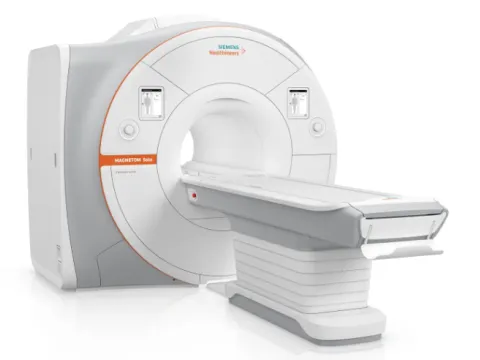
AdventHealth DeLand investing in next-generation MRI technology to enhance patient care
AdventHealth DeLand will soon install a new MRI system designed to deliver faster exams, sharper images and a more comfortable experience for patients in West Volusia.
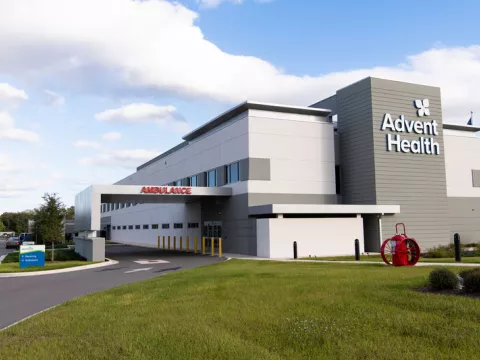
AdventHealth Wauchula earns 2025 Leapfrog Top Rural Hospital Award for outstanding quality and safety
People in Hardee County can feel confident knowing their local hospital is among the safest in the nation with AdventHealth Wauchula being named a Top Rural Hospital by The Leapfrog Group for its...

Innovative new procedure offers hope for heart transplant candidates at high risk for rejection
Innovation at AdventHealth is driven by one purpose: helping people heal in body, mind and spirit.

NC Supreme Court clears way for first phase of AdventHealth’s new hospital in Weaverville
AdventHealth is grateful for community support as NC Supreme Court decision clears the way for a new hospital.

The hidden cancer one clinician caught – and the process improvements she says matter most
Shana Vongkhankeo, APRN, discovered an unusual thyroid enlargement during a routine physical for a teenage patient, leading to a life-saving cancer diagnosis that highlighted how being fully present...
